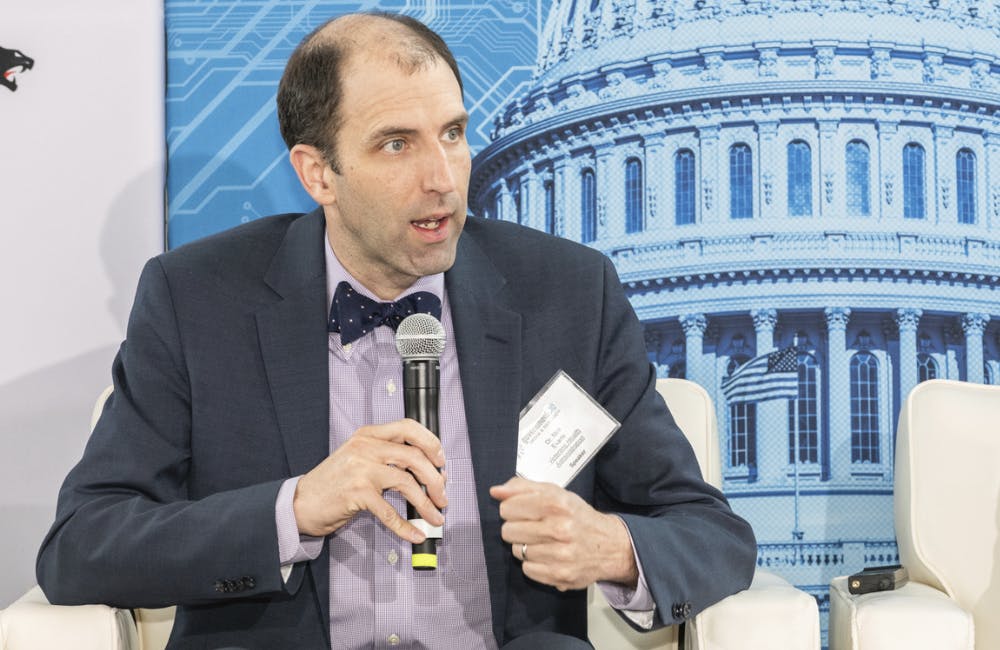Strategy for AI Development at VA Has Transformative Potential
VA representatives emphasized private-public partnerships and tying research initiatives to improving business lines.

Department of Veterans Affairs thought leaders see a bright future for artificial intelligence development while ensuring its most practical, effective applications. AI has potential to transform health care and improve agency services, Director of AI Gil Alterovitz and Senior Program Analyst Bennett Gebken said at an ATARC event Oct. 24.
Agencies across the federal government have begun outlining AI-specific policies as well as collating data sets specifically for use in AI and machine-learning initiatives as a result of a White House-led initiative put forth earlier this year. Among those moves at VA was appointing the new director of AI role based in the Office of Research and Development in July.
AI can radically advance diagnostics and catch otherwise lethal conditions before they become dangerous for patients, Alterovitz said, highlighting recent work at the agency in detecting acute kidney injury.
“When you’re able to predict something in advance … you basically remove the disease from the world,” he noted. Latent preconditions can be detected, and the disease preemptively treated, before reaching a crisis point for the patient.
There are now efforts to translate this to the clinic, he said. VA has begun efforts to partner with industry to bring this technology into wider use.
The data requirements needed to uphold AI research projects are both demanding and highly specific, Alterovitz said, and public-private partnerships will be essential for ensuring these needs are met. This simultaneously incentivizes agencies to share data while encouraging private developers to use this data.
“We can make data that is suitable for AI by intimately working between industry and government,” he said. This specific form of collaboration “allows us to scale AI.”
At the Veterans Benefits Administration, AI development will be focused on tying research initiatives to improving agency services.
“We shouldn’t do AI for the sake of AI,” said Office of Business Process Integration Senior Program Analyst Bennett Gebken. “There needs to be a business outcome or a task you’re trying to complete.”
This directs AI development along the pragmatic concern of how it will be applied to specific service lines.
Developers should maintain a consistent human review with machine-learning processes to note errors and subsequently improve accuracy, Gebken said. VBA often receives claims forms from veterans who might not know the exact medical terminology needed to classify the nature of their claims. While machine-learning processes are improving, “the algorithm will get it right roughly 90 to 92% of the time,” he said.
Maintaining human review and ongoing research collaboration will be essential for both innovation and improving existing services, Gebken said.
This is a carousel with manually rotating slides. Use Next and Previous buttons to navigate or jump to a slide with the slide dots
-

Trump's Return to Office Sparks Focus on AI Infrastructure
A potential AI czar and prior AI executive orders lead to new considerations for R&D and energy infrastructure.
7m read -

VA Focuses on Continuous Improvement for 2025 EHR Rollout
VA plans to resume rollout of its EHR in FY 25, focusing recent feedback to drive continuous improvement amid the presidential transition.
4m read -

Trump's Intelligence Pick Backs Cybersecurity, Tech Accountability
The former congresswoman has called for improving cyber defenses and advocated for accountability in federal tech and data practices.
2m read -

Trump's Education Nominee Calls for Tech Vocational Programs
Linda McMahon has called for investments in the tech workforce and small businesses to remain competitive.
3m read








